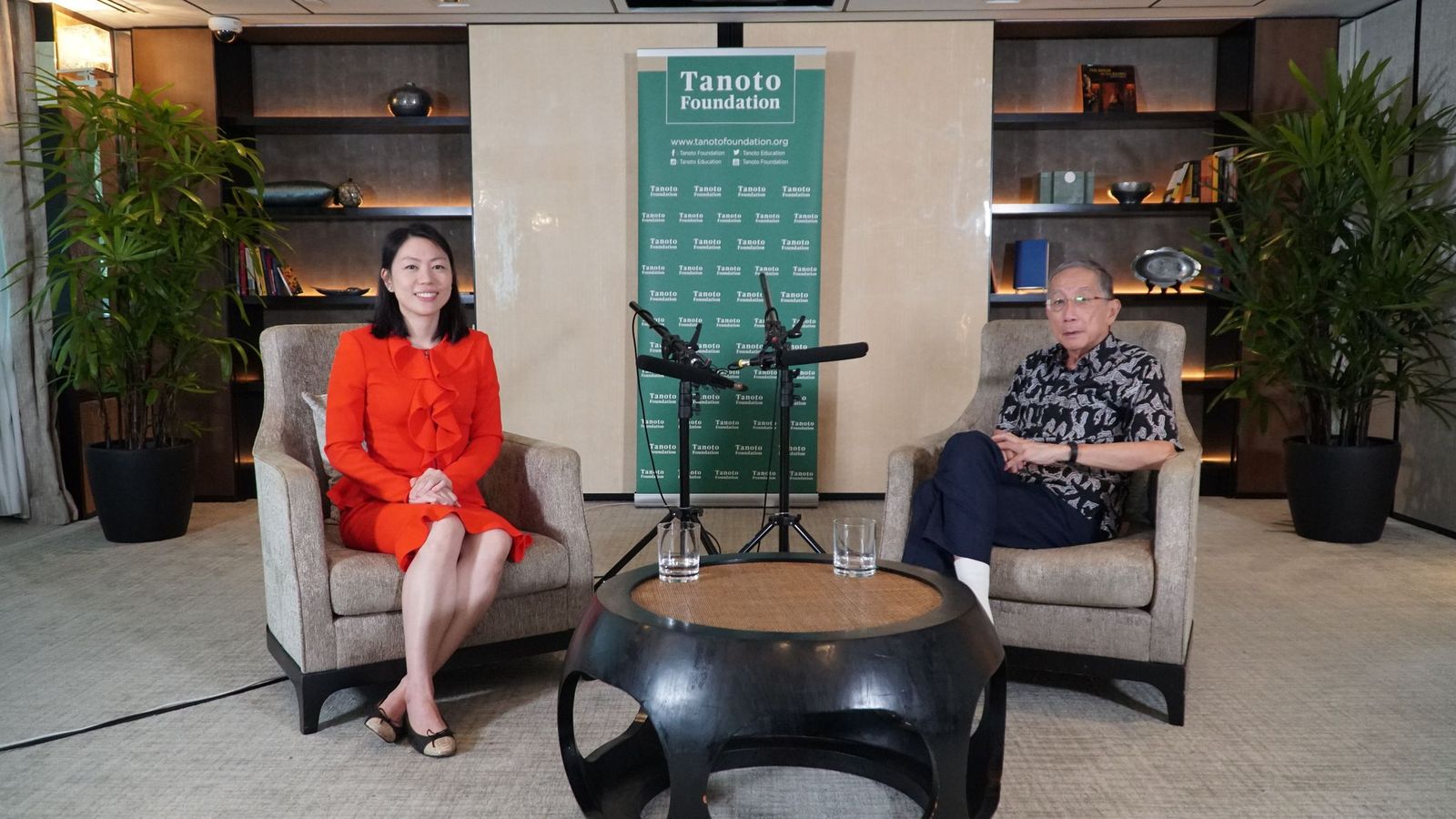Beyond The Pandemic: Vaccines, Education And The Role Of Individuals

Anyone hesitant about getting vaccinated against Covid-19 should look at the example of Israel. “In Israel there is 30 times less chance of you getting infected, and there is 10 times less chance of you ending up in hospital, because they have achieved 60 per cent vaccination.”
That’s according to Professor Tikki Pangestu, former Director of Research Policy and Cooperation at the WHO and a Visiting Professor at the Yong Loo Lin School of Medicine, National University of Singapore.
While the UK recently experienced a surge in cases of the Delta variant despite a successful vaccination programme, “what people don’t remember is how many people died. Double digits only. That tells you, you get infected, but you don’t end up in the ICU and you don’t die. If you’re not convinced of the value of the vaccine, look at those two examples.”
Professor Pangestu was speaking to Belinda Tanoto, one of the Trustees of Tanoto Foundation, on the first edition of our new Unlocking Potential podcast. As cases of Covid-19 continue to rise in Southeast Asia, they discussed vaccine hesitancy, the role of philanthropies and the private sector in fighting the pandemic, and how individuals can play their part.
The ultimate aim, Professor Pangestu said, is to achieve herd immunity, but this cannot be the sole responsibility of the government.
“What’s needed is collaboration between governments; between governments and the private sector; civil society organisations; even faith-based organisations, which are very important in Indonesia and many other countries; and philanthropies.”
He gave the example of the recent surge in cases in India. “It was very clear that the public health infrastructure on the government side was totally inadequate to deliver enough vaccines. That’s where they could have collaborated more closely with the private sector.”
Philanthropies and other organisations can help through providing vaccines and protective equipment, but ultimately what’s needed is better education of the general public to overcome the challenges of vaccine hesitancy and resistance to expert advice in general, he said. “I’m talking not just about hesitation on vaccines, but education on science literacy more generally. Even starting in primary school, because if the average man can understand the basics of the scientific method, they can understand better the risk and benefit arguments for vaccines, and that will mean they are less susceptible to misinformation and fake news.”
Time is of the essence in a pandemic, and when it comes to changing the minds of individuals who may be reluctant to get vaccinated, Professor Pangestu’s advice is to focus efforts on those who are undecided rather than determined anti-vaxxers.
“In any country you have three groups,” he said. “Those who are convinced that vaccines are good. At the other end of the spectrum, those, no matter what you say to them, are going to reject vaccines. With that last group, don’t waste your time. Just let them be wrong. The big group is the one in the middle… that’s what you want to target.
“My message to that group is there is so much you can do as an individual. If you accept that the vaccine is safe and effective you can protect yourself and your family from getting infected, from getting seriously ill, from ending up in ICU, and from dying.
“Beyond that… you are also fulfilling your responsibility as a citizen, which is protecting not just you and your family, but the bigger community, and essentially the entire nation.”
While attention is turning to the new normal, Professor Pangestu advises those who have already been vaccinated to not let down their guard.
“Don’t think of the vaccine as the magic bullet that will solve all your problems and you will exit the pandemic,” he said. “Yes, it’s one tool that we have. But continue to maintain those interventions that have been proven to be of public health value: wearing a mask, social distancing, washing your hands frequently, avoid crowded places.”
Unlocking Potential is the new podcast from Tanoto Foundation. If you’d like to stay informed of future episodes you can subscribe to it on YouTube or Spotify.
Listen now on Spotify!
This podcast was recorded on 25 June 2021.

Leave a Reply